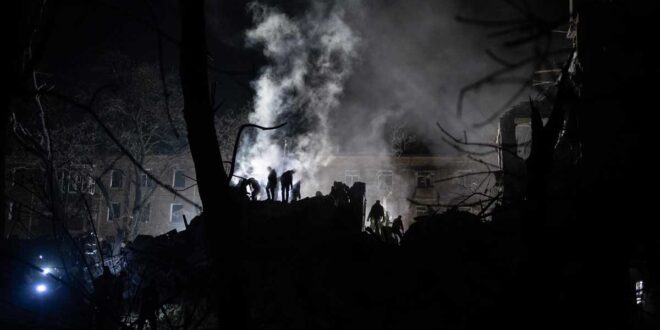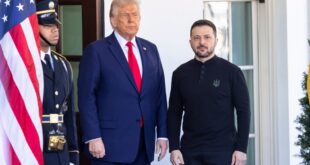Reality is that Ukraine has about as much chance of winning a war against Russia as Mexico would of winning a war with the United States, write in ‘Newsweek’ David H. Rundell,s a former chief of mission at the American Embassy in Saudi Arabia, and Ambassador Michael Gfoeller, a former political advisor to the U.S. Central Command and a member of the Council on Foreign Relations, who served for 15 years in the Soviet Union and Eastern Europe.
Five months ago, when we wrote that Bakhmut would eventually fall to the Russians, some readers of these pages scoffed at us. Didn’t we understand that Ukraine was winning the war?
How often have we heard that poorly trained, poorly led, poorly equipped Russian troops, many of them mercenaries and ex-convicts, have suffered staggering losses and been driven back from territory they initially captured?
Seven months ago, Russia mobilized 300,000 reservists and used the intervening time to train them. It threw armament production into high gear and amassed significant quantities of equipment and ammunition. Hundreds of thousands of Russian troops are now deployed in Eastern Ukraine where they have begun advancing in numerous of locations along a 450-mile front.
Ukraine, on the other hand, concentrated many of its best equipped and best trained troops in Bakhmut where they were pounded for months by Russian artillery, missiles, and drones. In the battle for Bakhmut, Ukraine lost thousands of experienced troops who cannot be replaced by conscripts with a few weeks of accelerated training.
Western weapons made the defense of Bakhmut possible. Again and again, NATO support for Ukraine escalated from short-range Javelin and Stinger missiles to medium-range HIMARS and Patriot missile batteries, to heavy weapons such as Abrams tanks and Bradley fighting vehicles.
Kiev’s advocates in the West did not pause to reflect on how they might end this tragedy. Instead, they called for the delivery of fighter jets and long-range missiles.
These weapons deliveries have fueled widespread public anger in Russia and a belief that they are now at war with NATO. The delivery of German Leopard II tanks resulted in Moscow headlines such as “German Tanks Are Again on Russian Soil” and even editorials claiming “The Fourth Reich Has Declared War on Russia.” One need not be a prophet to see where this persistent escalation is leading or why it needs to stop.
According to World Bank statistics, Ukraine had a population of 44 million when the war began, but today barely half that number are still in their homes. Eleven million Ukrainians have fled to Europe or are internally displaced.
Several million more have fled to Russia (!) and millions more now live in areas under Russian control.
Last year the Ukrainian economy shrank by 30 percent, while Russian GDP fell by only 3 percent. The ruble is as strong against the dollar today as it was when the war began. The IMF predicts that in 2023 Russia’s GDP growth will surpass that of Britain and Germany.
Clearly, Western sanctions have not destroyed the Russian economy.
While Russia remains largely self-sufficient in food, energy, and military hardware, much of Ukraine’s infrastructure lies in ruins. While Ukraine has become heavily dependent on NATO for armaments, both NATO’s own reserves and Ukraine’s old Soviet-era munitions stocks of artillery shells and air defenses missiles are quickly being depleted. In this war of attrition, time is not on Kiev’s side.
Moscow regards any NATO presence in Crimea in much the same way that Washington would view Russian missiles in Cuba or a Chinese naval base in Nova Scotia. It was never realistic to expect that Russia would surrender Crimea. Now, however, the peace terms Kiev can expect have become even less favorable than they were seven months ago.
From Moscow’s perspective, the referenda held in September 2022 transformed Lugansk, Donetsk, Zaporozhiya, and Kherson provinces into parts of the Russian Federation and as a result Moscow will now seek full control of these regions.
In six months’ time, Russia may well be able to dictate even harsher conditions for peace.
 Geostrategic Media Political Commentary, Analysis, Security, Defense
Geostrategic Media Political Commentary, Analysis, Security, Defense





